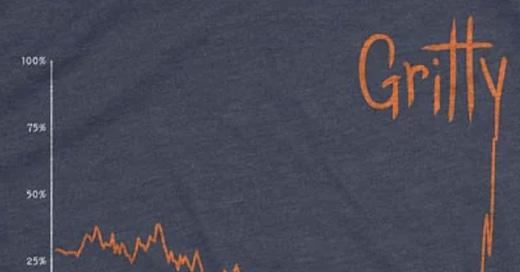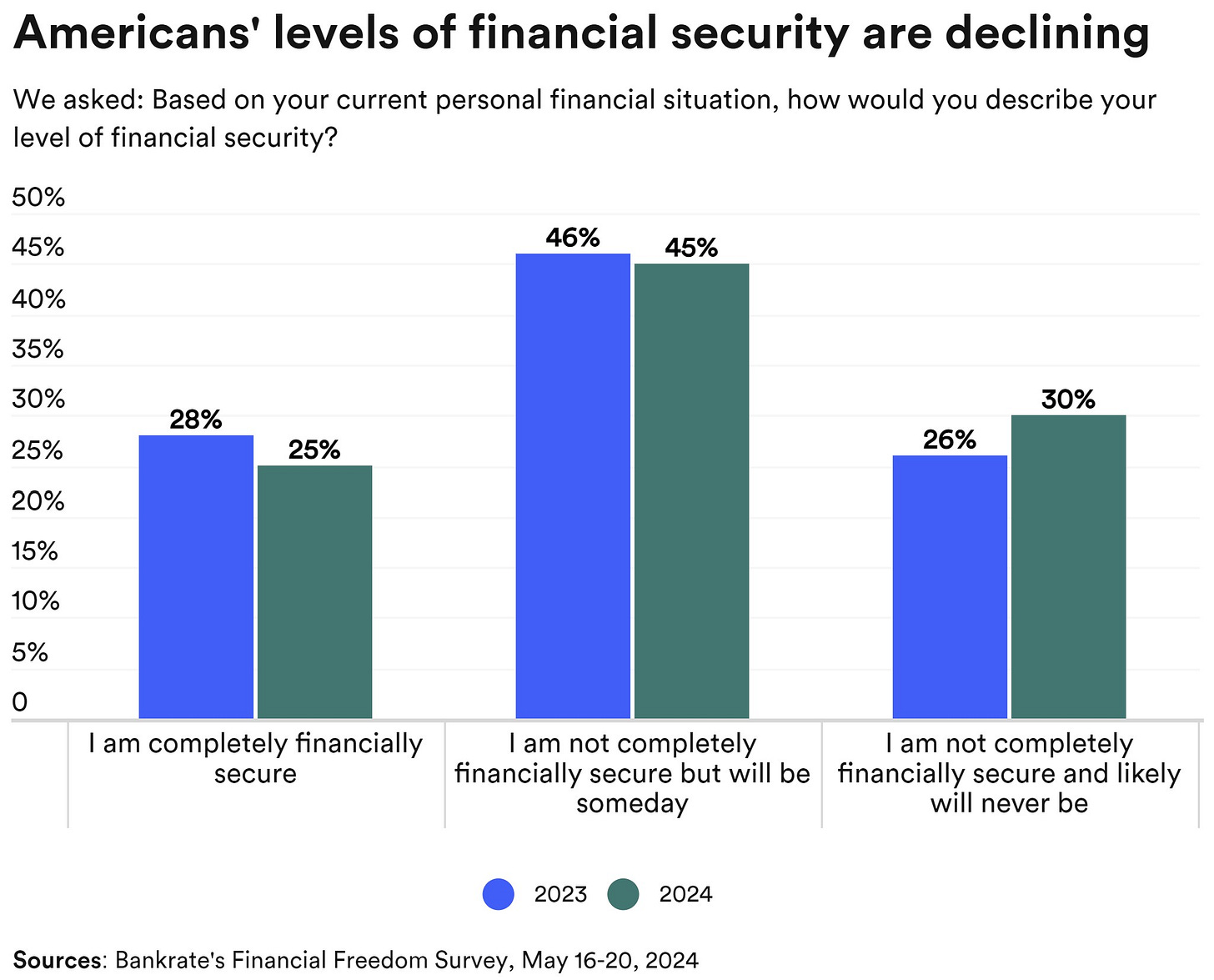Against the Odds
When building wealth – whether money, time, love, anything – resilience can matter more than statistics
It was a hell of a ride.
0.2 percent.
That was the odds of IT happening.
Not quite as unlikely as an asteroid wiping out Earth, but for Detroit baseball fans, it felt like a similar kind of shock when the near-impossible happened.
In early August, the Detroit Tigers were seven games below .500, clinging to a 0.2% chance of making the MLB postseason. In most eyes, it was over. Maybe next year. They could have given up, and no one would have blamed them. But, they didn’t.
Out of nowhere, the team went on an absurd 30-13 tear, surging into the playoffs. They defied the odds, propelled by the rise of young talent, the return of injured key players, and a chaotic but brilliant pitching strategy. And, yes, a little luck.
But more than anything, it was their grit – a relentless tenacity and unshakable confidence – that earned them the nickname “Gritty Tigs.” They pulled off one of the greatest season turnarounds in sports history, and in a blue-collar town like Detroit, that grit resonated deeply.
The Tigers fully embodied the character of the city that the Old English D they wear represents. A city that had lost its manufacturing core and more than half its population, suffered a terrible bankruptcy and became a national punchline – only to reverse course, rebuild and “rise from the ashes” over the last 20 years.
As Tigers manager A.J. Hinch said: “Our city is built on grit.”
There’s nothing better in sports than an underdog story – especially when it’s your team. It’s a story structure that we may be innately drawn to. We root for the upset, inspired by the Davids of the world, who remind us that life’s most likely outcomes aren’t set in stone. We can beat the odds. We can change the narrative.
As they racked up late-inning comebacks with swagger and a rebellious rallying cry – “Don’t let the Tigers get hot” – it reminded me of another underdog: Han Solo from Star Wars. The smuggler always grinned before taking a daredevil risk, saying, “Never tell me the odds.”
Today, we’re swimming in analytics – whether it’s in sports, health or money – designed to help us make “optimal” decisions. But there’s still value in knowing when to toss those numbers aside and trust something deeper. Sometimes, mindset matters more than odds.
One survey found that 92% of people don’t achieve their goals. Meanwhile, another study showed that when people adopt an underdog narrative, they’re better equipped to push through adversity.
Much of planning in life hinges on probabilities – the known variables like interest rates, market trends and savings goals. But sometimes, the best decisions aren’t the ones backed by perfect math. Chasing a dream career, pursuing what makes you happy or building real wealth might seem risky, but the willingness to stick with your goals can be just as critical as any projection.
Believing you can succeed when the odds seem slim is a key component of success.
Right before their incredible turnaround, Hinch held a team meeting. “What kind of team do you want to be?” he asked.
Two months later, as they popped champagne to celebrate their playoff berth, he said with a grin, “I guess you wanted to be a playoff team.”
In the seasons of our own lives, as we think about how to allocate our money, time and energy, it’s worth asking ourselves:
What kind of person do you want to be?
Why we obey the odds
Most people don’t want extravagance. What they want is simply financial independence – the freedom to stop worrying about bills, to do more of the things they want to do.
In a survey, 67% of Americans said achieving financial independence is important and that it’s the top marker of overall life success – the moment when you can say you’ve “made it.”
What are the odds of getting there?
Well, Americans now believe you need to be a multimillionaire to be considered wealthy. With around 336 million people in the U.S. and 24.5 million millionaires, the odds of becoming one sit at about 7.29%.
So, yes, reaching financial independence is a challenge. On the bright side, it’s still better than 0.2%.
Of course, financial independence means something different for everyone. You might need less to live your ideal life.
The real issue is that too many people sell themselves short, taking a glass-half-empty view. In fact, 30% of Americans say they’re not financially secure and likely never will be. The odds are stacked against them.
There are, of course, plenty of external factors that can slow your progress. For too many people, though, a scarcity mindset dominates. This negative way of thinking has you focused on what you don’t have and convinces you there will never be enough.
Whether it’s money, time, or something else, scarcity makes you play not to lose instead of playing to win. You might avoid negotiating your salary, terrified that asking for more will get you fired. It feels safer to keep the job, even if you’re underpaid, than to ask for what you deserve.
But our beliefs and actions can change the odds. Sure, some things are out of our control, but we’re not powerless. We can move the needle from less than 1% to 100% in our favor.
And those who embrace that belief – or, that gritter mindset – tend to do just that.
The power of grit
A negative mindset can’t be overcome by some product or strategy. It takes cultivating the right behavioral trait. There are plenty of qualities that can help: discipline, optimism, hope, and the like.
But the Tigers? They exemplify, perhaps, the best one: grit.
In her book Grit: The Power of Passion and Perseverance, psychologist and author Angela Duckworth defines grit as passion and perseverance for long-term goals. It’s not about how intensely you want something at the moment; it’s about caring so deeply for a goal that it shapes almost everything you do.
Grit means holding on to that goal. Even when you fall down. Even when you screw up. Even when progress is slow or seems non-existent.
As Duckworth puts it, grit depends on a different kind of hope. It’s not “I have a feeling tomorrow will be better.” It’s “I resolve to make tomorrow better.”
Duckworth even devised her own measure for this: the Grit Scale. Her research shows that those who score high on the Grit Scale tend to be not only tremendously successful but also deeply satisfied with their lives.
Now, it’s important to make a distinction here – grit is not the same as recklessness. Take the wild story of Fred Smith, the founder of FedEx. When the company was on the brink of bankruptcy, Smith took its last $5,000 and headed to Las Vegas, where he won $27,000 playing blackjack, money he wired back to the company for a little more breathing room.
Smith later said, “It was an omen that things would get better… I was very committed to the people who had signed on with me, and if we were going to go down, we were going to go down with a fight. It wasn’t going to be because I checked out and didn’t finish.”
Now, I’m not suggesting you hit Vegas when things get tough. Smith’s gamble was extreme and not one to imitate. But what’s admirable here is his unwavering belief in the mission he set out to accomplish. That blackjack win only mattered because Smith was committed to finding any path forward, no matter how slim the odds. It wasn’t luck, it was grit that kept him in the game.
When you keep searching for ways to improve your situation, you stand a chance of finding them. But if you stop searching – assuming there’s no way out – you’ve already lost. Your odds drop to zero.
Even when things look impossible, you keep asking: What kind of person do you want to be?
Because, in the end, even if you don’t answer that question directly, your life will. It’ll be recorded in your bank statements, your resume, your habits, your interests and most importantly, in the memories of the people who knew you.
The only number that matters
For sports teams, there’s always another season. Another championship to chase. The grind never ends.
But for us? There are no title defenses. No running it back. There isn’t always a “next season.”
I don’t want to sound glib, and I’m not a die-hard baseball fan. (I can barely name more than one or two Yankees.) But I think baseball is a lot like life. Most of it is slow, maybe even boring. It’s easy to get distracted, to multitask your way through the game. But then, there are those bursts of extreme excitement. The stakes skyrocket, and suddenly, one pitch or swing of the bat could change everything. And before you know it, you’re in the 9th inning, wondering where the time went, how the game flew by so fast, wishing you didn’t have to hear the call of the final out. Because that’s it – game over.
The only number that matters is one. You’ve got one shot. One chance at this life on Earth.
It’s uncomfortable to think about. When you do, it stirs up all kinds of tough questions as you reflect on your life. You start to wonder if you’re in the right job or relationship, if you’re really doing everything you can with your finite time and energy.
No wonder so many people stick to the status quo. Resigning yourself to “what is” feels a lot more comfortable than taking a risk and defying the odds.
But where does that leave you in the end? Isn’t it better to be gritty than comfortable?
Because comfort means whiffing at your one shot at being the kind of person you truly want to be. And the fact that you’re even here – alive, reading this – means you’ve already beaten the most improbable odds.
After all, you had about a 1 in 10 to the power of 2,685,000 chance of existing. So, if you’re here, congratulations. You’ve already defied the toughest odds.





